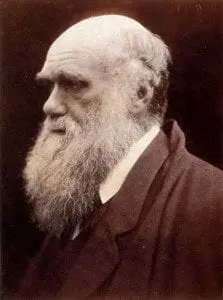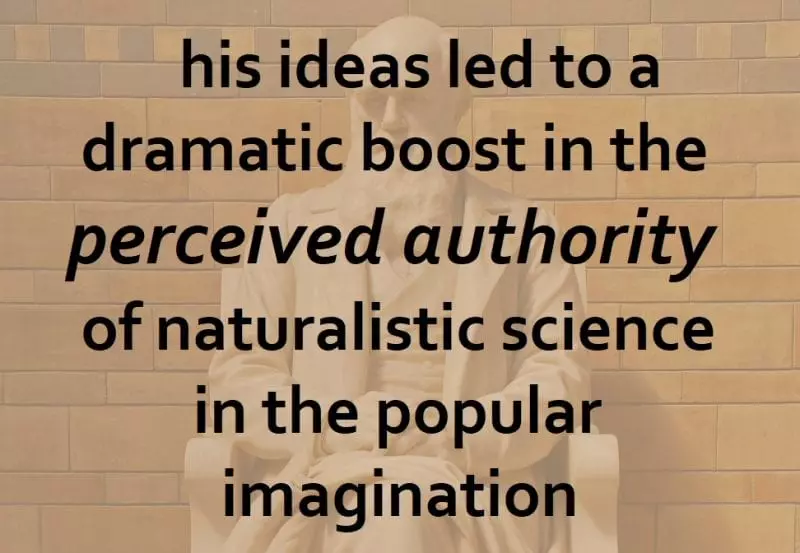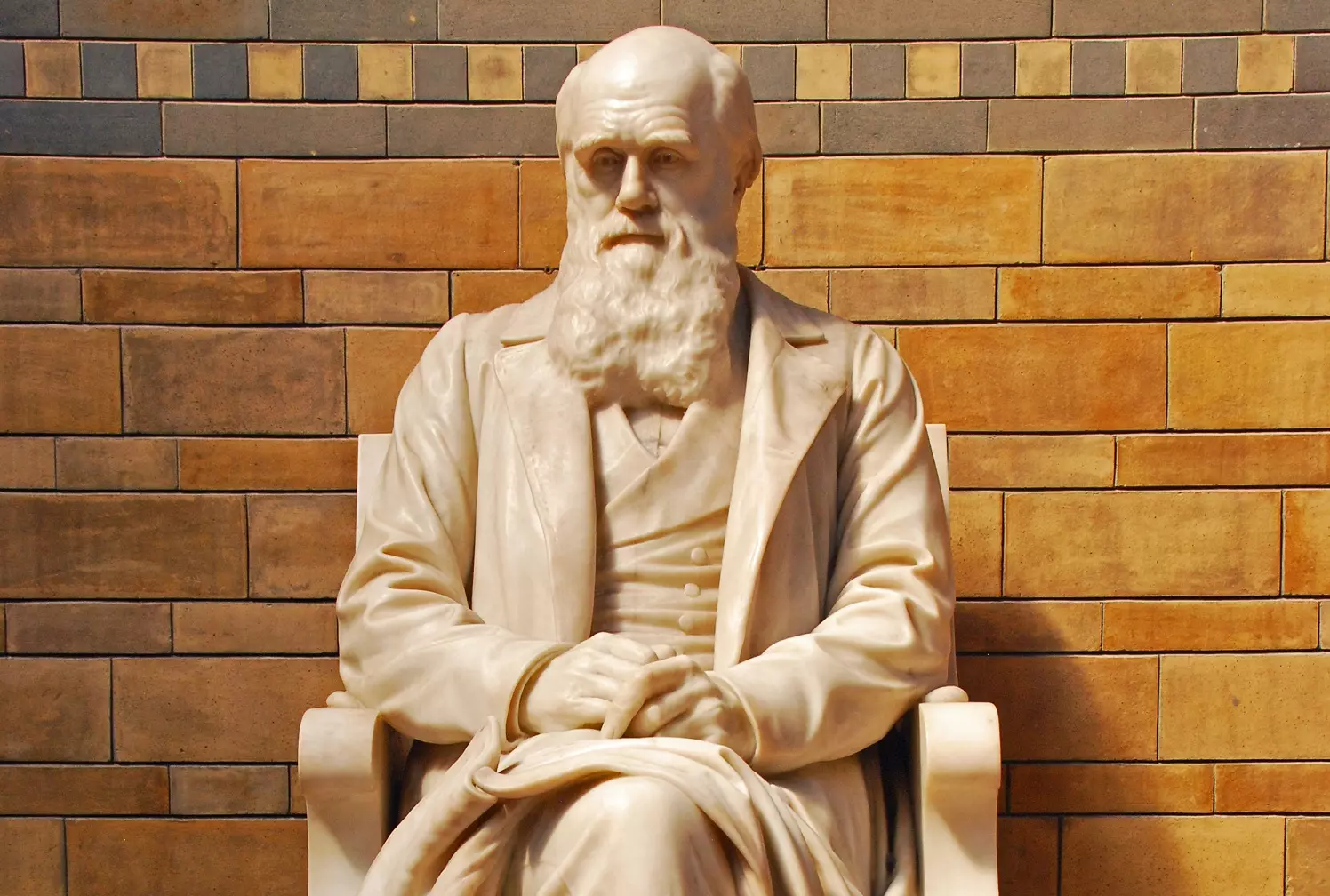
For some years now, February 12 (the birthday of Charles Darwin) has been designated “Darwin Day“ as a commemoration of his life and work as well as a celebration of science in general. Although some would consider the idea of such a commemoration offensive, I would like to provide a more evenhanded look at Darwin Day and what it stands for.
Charles Darwin as a person is both demonized by some in the creationist community and idolized by others in the evolutionary community, but let’s explore some middle ground.
Although Darwin held some racist beliefs, he supported the abolition of slavery and his racism was actually less pronounced than was common for his era. It is true that evolutionary theory fueled certain social and religious harms, but we cannot lay all the blame on Darwin. In fact, Darwin neglected to publish his evolutionary research for many years due to his own (and his wife’s) consciousness of the sociological and theological implications. Thus, contrary to what some may think, the destruction of Christianity was not Darwin’s motive when formulating his theories. (Although he did, apparently, end up losing his Christian faith and did not recant his beliefs/theories on his deathbed as some have mythologized).
Furthermore, Darwin’s scientific research did contribute to the formation of certain well-established scientific theories in the field of biology. The theory of microevolution—the idea that the traits of a species can change to an extent as the species adapts to its environment—provided answers for certain biological questions and was (and still is) well supported by the evidence. Microevolution is important to Creationist paradigms, as it shows how all of the species we see today could have originated from those brought on the ark during Noah’s Flood. So, ironically, creationist scientists could also be said to be evolutionists in the way that they agree with microevolution!
However, when microevolution is extrapolated across a timeline of millions of years, mainstream evolutionary scientists claim that we get macroevolution. Macroevolution is the idea that evolutionary changes result in totally different kinds of organisms. Macroevolution, informally known as “molecules-to-man” evolution, cannot be directly observed as microevolution can. Today, many mainstream evolutionists deny any distinction between microevolution and macroevolution. They maintain that macroevolution can be logically inferred from the unlimited accumulation of traits through microevolution over millions of years–thus trying to negate any meaningful distinction between the two.
Ultimately, Darwin’s work had a major effect on the way people think about science and theology and laid the foundation for a new way of viewing the world. Darwin’s theories may have provided good answers for certain biological questions, but his ideas led to a dramatic boost in the perceived authority of naturalistic science in the popular imagination and ignited one of the most venomous controversies in the history of science and theology. In the end, even though some would deny Darwin a place on the list of great scientists, he is, for better and for worse, one of the most broadly influential.
As far as choosing the birthday of a famous scientist as a holiday to celebrate science, Darwin remains a controversial choice. One immediately thinks, “Why do we not celebrate ‘Einstein Day’ or ‘Galileo Day’ or ‘Linnaeus Day’?” My guess is that, at least for some, Darwin and his theory of evolution represent the ability of science to become the ultimate authority and the final triumph of secular humanism. Darwin and his theory may be thought to represent the final liberation of science from any theological constraints, thus permitting science to form its own complete worldview: one that allows scientists to try to explain reality without permitting a divine foot in the door. As Richard Dawkins wrote in his book The Blind Watchmaker:
“Although atheism may have been logically tenable before Darwin, Darwin made it possible to be an intellectually fulfilled atheist.”
To many of those celebrating on Feb. 12th, perhaps this is what the work of Charles Darwin means.
Ultimately, it is a good idea to take a balanced view of Charles Darwin, who, like all of us, had his accomplishments and his shortcomings. However, there needs to be an honest re-evaluation of the meaning and value of Darwin Day celebrations. Although Darwin’s research had some positive impacts, choosing him as the centerpiece for the celebration of science does more to alienate those who disagree with Darwin’s main conclusions than it does to elevate good research. In the end, if a more gracious and inclusive scientific dialogue can be fostered by retiring Darwin Day, then that is a small price to pay.







This adoration of Darwin is one reason that we’ve been having Question Evolution Day annually on Darwin’s birthday for the past several years.
How can the biological computer that has a mind capable of emotion even be considered a fluke. This evolution theory is just proof that the brain had to made by an awesome Creator. God gave us the ability to create such hogwash as evolution. No amount of rocks, mud or swamp soup could come up with so many beautiful creatures that the almighty God created.
I am glad to see someone with a more balanced view of Darwin’s life. As a young earth creationist, I do not agree with his conclusions, but you have to give the man credit for the work he did … traveling around the world on a sailboat collecting notes and specimens of animals and plants on islands and continents around the world is no small task.
However, I must ask if you really want to say creationists agree with microevolution. What are you implying when you use the term “microevolution”? You are implying that the changes occurring within a species happen because of evolutionary processes of mutation and natural selection (a slow process requiring new genetic information). You are agreeing with their evolutionary model. While we as creationists agree that small changes and even speciation does occur … it is by other processes (what I call environmental acclimation) and this can happen quickly because it comes from already existing genetic information. Quite simply, conceding the term microevolution, and everything this term implies, has already given the enemy the high ground in the battle when that is not what is meant at all.
Otherwise, a well timed article for Darwin day. Good job.
Greetings! I’m glad you liked the article!
When I used the term “microevolution” I defined it as: “the idea that the traits of a species can change to an extent as the species adapts to its environment.” I don’t know of any creationists who would disagree with this phenomenon, and I’m pretty sure evolutionists would also accept this definition (except for the “to an extent” part, probably). Over my experience with the ce-debate, defining existing terms (and/or explaining what we mean when we use them) is a smart step that can save us the headache of having to explain alternate words that mean practically the same thing (as long as we do not stray too far from the accepted definition, which most creationists don’t when they use the term “microevolution”).
However, if a hypothetical creationist uses a term like “microevolution” without explaining what he means, that can end badly as his hypothetical evolutionist friend is then free to advance his own definition and drop something akin to the “macroevolution happens when microevolution goes on for millions of years” argument…And all of that anguish could have been averted if our hypothetical creationist had said something like: “When I say that I don’t believe in evolution, I’m not saying that I don’t believe that the traits of a species change (to an extent) over time. There is a lot of directly observed evidence for that. However, macroevolution (the idea that all living things descended from a common ancestor over millions of years) cannot be directly observed.” Of course, the hypothetical evolutionist will probably debate the last point, but unnecessary confusion has probably been averted and a more interesting dialogue will ensue as a result.
At any rate, this is an interesting topic that merits further consideration! If you’re interested, I run a creation/evolution discussion forum at http://www.ce-debate.org/forum. Please feel free to stop by!
Great points, and I think it is good that we not demonize Darwin, and we should also point out that we have no problem with “evolutionary” studies of mutations, natural selection, and speciation. Perhaps we would not be so fiercely and falsely attacked if we made it better known how much of this science we can and do accept.
Todd Elder wisely points out the difficulty of using evolutionists’ terminology, but while it’s good to be aware of the problem, I don’t think that avoiding the terms or using others will work any better than simply explaining what we mean. If we say we accept speciation that sometimes involves mutations and natural selection — even with a slightly different model involving internal adaptation mechanisms through genetic and epigenetic information — to many evolutionists, that’s the same as accepting what they call macroevolution! The idea of “macroevolution” referring to the whole line of molecules-to-man seems to be unique to creationists.
I believe we need to separate the scientifically demonstrable facts and studies of evolution from evolutionism — the faith in natural processes to produce all life from microbes. I also believe the key for doing that is hidden in this: “when microevolution is extrapolated across a timeline of millions of years, mainstream evolutionary scientists claim that we get macroevolution.” This is clearly not a claim that can be scientifically demonstrated, but more importantly, it is also not even extrapolation, but jumping to a conclusion. We must understand, and make others understand, that change is not a simple commodity that can grow indefinitely by accumulation.
You can extrapolate from small drops of water to an ocean, you can extrapolate from small grains of sand to huge dunes and vast deserts, but the “small” changes we observe in living things over generations cannot accumulate to produce the “big” differences in all living things! So it is not extrapolation, but an assumption that jumps from observing certain kinds of changes to belief that very different kinds of changes happened.
Indeed, Darwin did not set out to make atheists feel fulfilled, nor to boost the authority of naturalistic philosophy masquerading as science. In fact, it was the degree of such authoritarianism which compelled Darwin to reach the conclusion that he did. It had been instilled and installed already in geology, in rejecting the Bibles account of Divine creation and the global flood for the doctrine of uniformitarianism. As Darwin read the leading work of geology, having been invited aboard the HMS Beagle as an amateur naturalist-geologist and companion for the ship’s captain, such naturalistic thinking inevitably constrained his thoughts to some form of gradual natural change in biology as well. He only needed a plausible “mechanism” and theory of heredity to create a story that, in the new view of science, constituted the only plausible “scientific” explanation.
So Darwin can hardly be held responsible for something that the new view of “science” compelled him to produce. Although he produced a large book with lots of data and clever rhetoric, Alfred Russel Wallace had come up with the same idea of natural selection operating on ordinary generational variations. Darwin’s mechanism of plasticity through use or disuse, and his theory of heredity, were quickly discarded, leaving only the shell of naturalistic philosophy applied to biology — somehow life gradually developed all its amazing forms through natural processes. Clearly, Darwin is merely a figurehead for the faith that God did not have to actively create distinct forms of life, and it is as an idol of this faith that he is celebrated on this day.